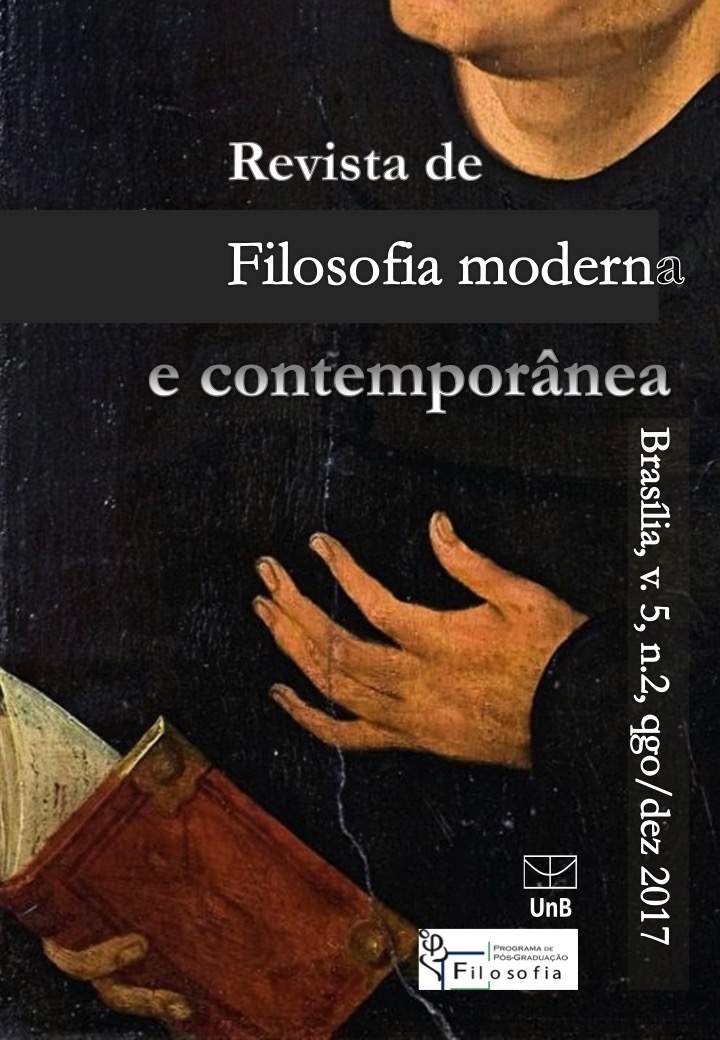A hero of subjectivity
DOI:
https://doi.org/10.26512/rfmc.v5i2.12592Keywords:
Hegel, Luther, German idealism, Philosophy of religion, ChristianityAbstract
The aim of this article is to examine how, for Hegel, Lutheran Reform was able to reestablish the bond between individual and divine. As we know, Catholicism founded the figure of the saint and the priest as mediators, depriving the subject of the freedom to address God from his own interiority. In this sense, Luther’s teaching is based on simplicity: it refuses the traditional external relations of the church and preserve only the essentials of Christianity, that is to say, subjective access to the supermundane. We try to avoid biographical interpretations, which see in the work and in the letters of Hegel an attempt of overcoming the reform, because we understand that it is not in question a perspective of correction or improvement of the instituted Christianity, in whatever form, but rather an attempt to understand the historical manifestations of his doctrine.
Downloads
Published
Issue
Section
License
Copyright for articles published in this journal is retained by the authors, with first publication rights granted to the journal. By virtue of their appearance in this open access journal, articles are free to use, with proper attribution, in educational and other non-commercial settings.


